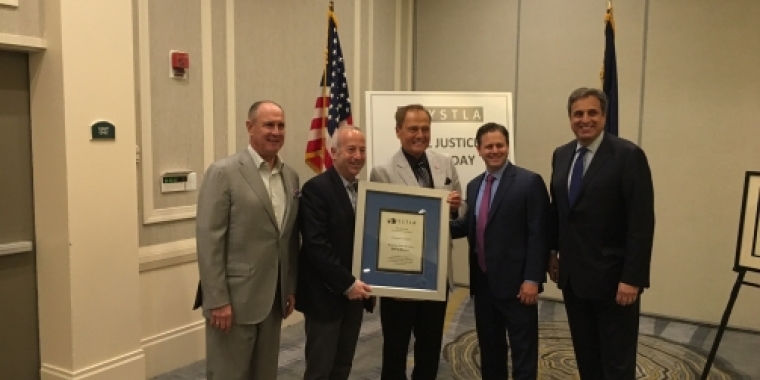
Senator Bonacic Supports 2016-2017 Budget Proposal that Provides Meaningful New Tax Relief and Record School Funding
March 15, 2016

(Albany, NY)-State Senator John J. Bonacic (R/C/I-Mt. Hope) is pleased to announce that has voted in support of the Senate’s 2016-17 budget resolution. “I’m pleased to support this budget resolution that provides real tax relief for millions of middle-class families, increases support for our schools to a record level, spurs the growth of our economy to create more jobs, and continues a fiscally responsible approach to strengthen New York’s finances for the long-term,” said Senator Bonacic.
RECORD LEVEL OF FUNDING TO SCHOOLS
The Senate budget proposal includes a year-to-year 7.15 percent school aid increase of $1.655 billion. The $24.8 billion education proposal would provide a record amount of education funding, with highlights including:
- Ending The GEA in 2016: The Senate budget restores the remaining $434 million in Gap Elimination Adjustment (GEA) cuts for schools in 2016-17 and permanently eliminates these harmful education budget reductions.
- An $880 million increase in Foundation Aid over 2015-16;
- Full funding of $341.9 million in Expense Base Aids;
- An additional $10 million for the Library Construction Fund; and
- An increase of $5 million in Library aid.
PROVIDING REAL TAX RELIEF
Cutting Middle Class Tax Rates to the Lowest Level in 70 Years:
The highlight of the Senate Republicans’ budget is the new Middle Class Income Tax Relief
Program that establishes the lowest middle class tax rate in more than 70 years. Starting in 2018, a total of 5 million eligible taxpayers – including more than 770,000 small businesses who file under the Personal Income Tax (PIT) – would begin to see savings. When fully implemented, middle class New Yorkers will pay a 25 percent lower tax rate and save $3.5 billion in taxes each year.
GROWING NEW YORK’S FARMS
- Restoring Funding Cuts: The Senate budget once again restores cuts to provide $10 million to help family farms.
- Beginning Farmers: The Senate budget eliminates the acreage eligibility limit for the Beginning Farmers Grant Program to expand the pool of eligible farmers.
- Supporting Ag Research: Increases state funding for Cornell’s College of Agriculture and Life Sciences to $4 million to meet the growing demand from students for agriculture
- Restores budget funding for a third round of Beginning Farmer grants, created as part of the Senate’s 2014 Young Farmers initiative to encourage interest in agriculture and help protect the future of family farming;
- Increases funding for regional cooperative extensions;
- Increases investment in FarmNet, which provides services and assistance to farmers, including business and farm transition planning;
- Extends the Beginning Farmer Student Loan Forgiveness Program with an additional $50,000 to include students who are pursuing degrees in agriculture education;
SUPPORTING SENIORS
Savings on Retirement Income: New income tax relief to help more seniors save money by increasing the exempt amount of private pensions and retirement income, the first increase since 1981, providing nearly $275 million annually when phased in. For 35 years, seniors have been able to claim the first $20,000 of pension or retirement income as exempt income. The Senate Majority’s proposal increases that exempt amount to $27,000 in 2017, $34,000 in 2018, and $40,000 in 2019. This would provide tax relief to more than 377,000 seniors and, in the first year alone, would save each an average of $361.
Community Services for the Elderly: The Senate increases funding for Community Services for the elderly by $3 million to eliminate local waiting lists for the program.
Elder Abuse: The Senate builds upon its longstanding commitment to protecting vulnerable senior citizens by providing $1.5 million to support elder abuse awareness, screening, and reporting initiatives.
SUPPORTING VETERANS
Veterans Buyback:
The Senate and Assembly have repeatedly passed legislation that would allow veterans to obtain up to three years of additional credit toward their state retirement benefits for peacetime military service. The Senate advances this legislation as part of the budget proposal to ensure funding is allocated to allow this important veterans initiative becomes law.
Share this Article or Press Release
Newsroom
Go to Newsroom


